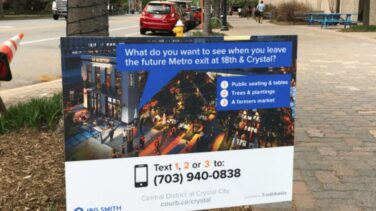
One of the biggest challenges faced by commercial planners and developers is the NIMBY (‘Not In My Back Yard’) movement, which exists in nearly every town. It is a movement born of resistance: to change, primarily, but also at times even to considering the potential pros instead of focusing on the cons of a new development.
NIMBYism is still shepherded by those who have always been the base of the movement: homeowners and longtime residents who want things to stay the same. However, there is a rising tide of community members – often younger and more liberal than their traditional NIMBY peers – who are standing in opposition to new housing, density, and change. This ‘new face of NIMBY’ represents an additional and very real threat to equitable community engagement and, ultimately, progress.
The new NIMBYs use some of the tactics familiar to NIMBYism, but with seemingly more justification for their pushback. They rally around the tried and true objection that new developments will bring too much traffic, but often lean into ideas substantiated by false environmentalism to make their case.
They also claim that they want ‘responsible development’ only, and aren’t anti-development at the core. However, when you dig deeper, there are rarely any projects that these groups publicly support.
These new NIMBYs are also becoming even better at organizing, especially virtually. Community Facebook pages, NextDoor, Reddit threads, etc. are all fair game.
This article spotlights one of one local NIMBY groups in a greater Boston suburb: the ‘Not For Sale.m Coalition,’ self-described as a grassroots organization of diverse neighbors from across Salem working together to stop overdevelopment.
Groups like this represent a growing concern in the mission to build equitable community engagement, since unlike their original NIMBY forebears, they aren’t just a handful of the same faces railing against change at a town meeting. Newer NIMBY organizations are oftentimes young, diverse, and utilize technology to spread their message.
It can be unfortunately easy to view these conversations in a passive fashion. If you aren’t a personal abutter or hold a personal stake in a new development, it’s hard to prosecute the NIMBY point of view that voices a fear – rational or not – of overcrowding and increased traffic.
However, the viewpoint of many NIMBYs is intrinsically problematic on a level that everyone should pay attention to.
According to Darrell Owens, a housing commissioner for the city of Berkeley, California, a ‘NIMBY is somebody who is opposed to housing in their neighborhood, oftentimes for aesthetic or economic reasons that are anti-poor and anti-middle class.’ He further goes on to add that concerns around ‘welcoming apartment dwellers into the community would lower single-family property values or harm the reputation of local public schools as classist reasons for opposing new housing construction.’
Thankfully, Mr. Owens is not fighting this battle on his own.
There are a growing number of what have been dubbed ‘YIMBY (‘Yes In My Backyard’) movements to counter the plethora of anti-development groups, organizations like the California YIMBY, who fight alongside policy experts and elected officials to help pass legislation in support of ‘affordable housing, equitable communities, opportunity, and new neighbors.’
Another example of YIMBYism in action is Housing Forward MA, a Massachusetts-based nonprofit that promotes and believes in a high-level vision of providing data-backed policy solutions to support the creation of affordable, workforce housing in Massachusetts.


